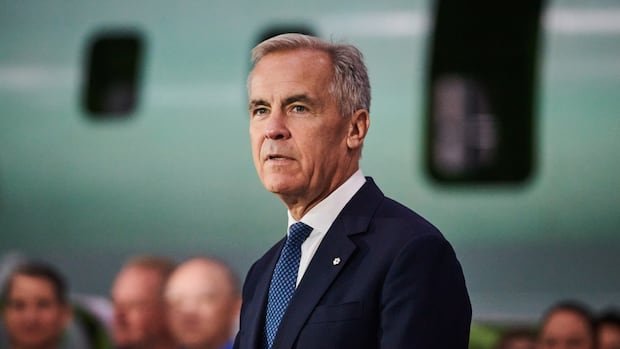The Canadian federal government has quietly eliminated more retaliatory tariffs on American goods than initially disclosed, as per a recently published order-in-council. The notice, released last month, reveals that aside from specific tariffs on steel, aluminum, and auto sectors, all other retaliatory tariffs from Canada have been lifted, contrary to previous statements made by Prime Minister Mark Carney.
Carney had pledged to remove counter-tariffs on U.S. products covered under the Canada-United States-Mexico Agreement (CUSMA) in August. This move was intended to mirror President Donald Trump’s imposition of 35% tariffs on Canadian goods not included in the free trade pact. However, the official order-in-council shows that non-CUSMA-compliant items crossing the border will not face counter-tariffs, indicating a lack of reciprocity in Canada’s policy compared to the government’s initial portrayal.
William Pellerin, an international trade lawyer and McMillan LLP partner, noted, “The announcement by the prime minister seemed to aim at aligning with the U.S.’s actions toward Canada,” suggesting a potential political motive for the decision to appear more balanced. Carney announced the tariff removal on August 22, with the official notice published on August 29, though the exact timing of the policy shift remains unclear.
The revenue that could have been generated from counter-tariffs on non-CUSMA-compliant goods is uncertain, but Pellerin believes it would have been minimal and unlikely to cover the costs of enforcing these tariffs through additional staff at the Canada Border Services Agency. Consequently, discontinuing the counter-tariffs was deemed a logical choice due to the labor-intensive compliance and enforcement efforts for minimal gains.
While most goods crossing the border are eligible for CUSMA compliance, meeting the specific criteria and navigating the associated paperwork has been described as a burdensome and costly process by trade experts. Implementing additional compliance and enforcement measures on the Canadian side to handle this paperwork would have been necessary.
Describing the decision to forgo non-sectoral counter-tariffs as an “exercise in bureaucratic restraint,” Pellerin highlighted the government’s push to advance trade talks with the U.S. A spokesperson for Finance Minister François-Philippe Champagne emphasized the government’s commitment to negotiating a beneficial deal that safeguards Canadian workers and industries while promoting economic priorities and industrial strength.
Criticism of the government’s trade strategy has come from Conservative Leader Pierre Poilievre, who accused the prime minister of making unwarranted concessions to the U.S. without receiving reciprocal benefits. Poilievre has also humorously referenced Carney’s slogan, suggesting a lack of assertiveness in current negotiations.

